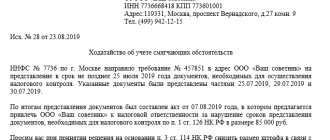Art.
73 of the Code of Criminal Procedure of the Russian Federation talks about what circumstances are to be proven. These rules do not affect civil proceedings; they have evidentiary value in relation to criminal cases. The Code of Criminal Procedure provides that such circumstances must be established during the investigation of the case, that is, evidence of the commission of a particular violation is presented at the court hearing. Multi-channel free hotline Legal advice on criminal law. Every day from 9.00 to 21.00
Moscow and region: +7 (495) 662-44-36
St. Petersburg: +7 (812) 449-43-40
Crime Event
This concept is collective. In accordance with the provisions set forth in Art. 73 of the Code of Criminal Procedure, it includes such components as time, method, as well as the location of the crime and other similar concepts. The first point of the event of an unlawful act represents a certain moment or time period during which a socially dangerous act was committed. The second category - method, is defined as a set of any techniques, methods by which the offense was committed. The third characteristic of the event of an unlawful act is the crime scene, which indicates a specific territorial area or object where the criminal act was committed. Also to clause 1, part 2, art. 73 of the Code of Criminal Procedure can also be considered a sign of the situation. This category contains indications of specific conditions, circumstances or events that took place during the criminal act.
Guilt
This category refers to the sign of the subjective side of an unlawful act. Guilt is defined as a person’s negative mental attitude towards objects protected by criminal law. For this category to become legal, it is necessary that this negative opinion of the criminal towards legal prohibitions is expressed in causing harm to them on purpose or carelessly. Wine includes two elements. The first of them - intellectual - is characterized by the fact that a person is aware of the social danger of an act, foresees the likelihood of consequences and sees a causal connection between the unlawful act he commits and its results.
The second element—volitional—describes the criminal’s desire to harm. A person may want to commit a socially dangerous act, or may not have such a urge. Various combinations of elements of guilt act as its individual forms and types. Thus, intent can be direct and indirect. The careless form of guilt, in turn, is divided into two types - frivolity and negligence. In addition, clause 2, part 2, art. 73 of the Code of Criminal Procedure stipulates that the circumstances and motives for committing an unlawful act are subject to mandatory establishment. This category is understood as an internal urge that guided the criminal in his actions. Motives can be both base (for example, self-interest, hooliganism) and not base (jealousy, revenge for unlawful behavior).
Characteristics of the criminal
In order to understand exactly what circumstances describing the accused are enshrined in paragraph 3 of Part 2 of Art. 73 of the Code of Criminal Procedure of the Russian Federation, you will still need to read the comments. Let us turn to the book by A.V. Smirnov and K.B. Kalinovsky. Thus, these jurists classify similar circumstances into several groups. Firstly, these are socio-demographic characteristics. This includes data on last name, first name, patronymic, as well as gender, place of residence, age, marital status and other similar descriptions. Secondly, this is the social and legal status of a person, namely, state of citizenship, place of work, title. The third group is the circumstances that describe the individual as a member of society (his behavior in everyday life, during work, whether he has dependents). The fourth point is the physical and mental characteristics of the individual, such as the presence of diseases, including mental ones, and certain addictions. Individual characteristics of the criminal are of great importance. They can act as aggravating or mitigating circumstances.
A comment
Art. 73 of the Code of Criminal Procedure of the Russian Federation with commentaries is often considered in the theoretical literature. The subject of proof under the Code of Criminal Procedure stipulates that it is required to prove the existence of an event of an unlawful act. This suggests that all factual circumstances must be fully and comprehensively examined. This study is necessary in order to establish the proper qualifications of the actions of the perpetrators. The characteristics of the object itself, the composition of actions, and the objective side must be taken into account.
The concept of guilt and establishing motive
The concept of proving guilt is understood as establishing the commission of illegal actions by a certain person. A person can act either with pre-formed intent or carelessly. In this light, signs of a crime that have a subjective coloring appear.
In some situations, the determination of guilt is given not only taking into account the provisions enshrined in the norm in question. Fraud, murder or other categories of cases require establishing that the subject has certain characteristics. This applies to situations where the perpetrator is represented by a special subject. In private situations, this may be a minor or another person.
The laws of the Russian Federation speak of the need to establish the motive that guided the perpetrator, as well as his goal. It is also necessary to determine which subjective factors influenced the legal qualification of the crime to one degree or another.
Characteristics of the culprit
The new law in its latest edition provides that the identity of the perpetrator is characterized by establishing the following factors:
- information about the criminal that is of an identifying nature (this is, in particular, his last name, initials and other information);
- consultants in the legal field also point out that it is necessary to establish data reflecting a person’s position in society and his role.
The clarification indicates the need to establish the nature and extent of the harm that was caused in order to make the right decision on issues of criminal law nature. In particular, we are talking about an impact that has significance for punishment.
The Civil Procedure Code, as well as the Code of Criminal Procedure, provides for the institution of civil claims. With its help, relationships are realized that have a compensatory or restorative value.
Was there any harm done and what contributed to the crime?
Part of the article in question talks about the need to prove that harm was caused through the commission of a criminal act. It can be of a moral, property or physical nature. The latter differs in that there is a direct impact on the personality of the victim. When the damage is of a property nature, it is necessary to establish the exact amount in order to correctly build the charge.
Circumstances that will be included in the group of those that exclude the criminality of actions are considered criminal categories and are prescribed in the relevant code. They can be defense of a necessary nature, extreme necessity and other factors.
The stage of proof is also associated with establishing circumstances that mitigate or aggravate the punishment. This type is enshrined in criminal law. In addition, this situation also reflects other information about the identity of the perpetrator. They are important when the judicial body decides questions regarding whether it is possible to reform a criminal without applying punishment to him, what specific measures should be applied, whether a suspended sentence can be applied, etc. Other circumstances can also be included in the list under consideration, since it is not closed.
In some situations, after proving all the circumstances, release from punishment follows. This category will also be called in criminal law. It is provided that the perpetrator can make active repentance, make peace with the injured party, acts of amnesty and other provisions listed in the law are applied to him.
Introducing into the law the need to establish the circumstances that contributed to the commission of an unlawful act was associated with preventive considerations. Persons leading the investigation process, as well as judicial officials, find out not only these circumstances, but also take measures aimed at eliminating them. Considering that in a criminal trial everything is based on evidentiary value, the identification of these circumstances indicates the implementation of the entire procedure in accordance with the rules that have criminal procedural significance.
Relationship between action and consequence
When talking about the commission of acts for which the punishment may be confiscation, it is necessary to collect evidence establishing that there is a certain connection between the criminal act and the resulting consequence. In particular, we can talk about property obtained as a result of committing an illegal act or about the profit that the perpetrator received after selling these things. Transporting valuables from one place to another does not indicate the presence of such a feature in the composition.
This formulation covers gains of a property nature. It is formed as a result of the presence of a causal relationship between illegal human activities and the consequences. Actions can be expressed in any form, and they are established by the persons conducting the investigation of the case.
Changes in the property status of the person who committed the illegal act are also subject to assessment. The legislator points out that the property was obtained by the perpetrators directly during the commission of a criminal offense. The connection between the action taken and the consequences that occurred as a result is also taken into account. Property has individual characteristics. The perpetrators give legal form to the rights regarding the use and disposal of the thing.
Profit can be obtained by the criminal as a result of the use of stolen items in circulation that has economic significance. Valuables, including finances and other property, are used to support terrorist activities, illegal actions of groups that are organized in nature, and various communities created for the purpose of committing attacks. Among other things, instruments that belong to persons who have committed illegal acts are also subject to registration. The Code of Administrative Offenses does not contain such rules regarding the characteristics of the commission of offenses. Part 2 of the commented article indicates that it is necessary to identify all the circumstances that characterize the actions of criminals.
The legislator considers funds used to bribe certain persons as objects used to commit illegal actions. This makes it easier to commit a crime with a terrorist orientation.
When a situation arises that it is not possible to confiscate property obtained as a result of illegal activity for various reasons, in particular - if it is used, sold, etc. - the judicial authority makes a decision regarding the seizure of the amount of money. This amount must fully correspond to the value of the property obtained as a result of the encroachment.
A similar provision of the rules of the substantive part of the law is required for the investigation of cases with a criminal nature, and also during the court hearing, the representative of the prosecution proves that the actions must be assessed under Article 104.1 of the Criminal Code. It is reflected that the perpetrators received a certain profit after the implementation of criminal plans, but at present there is no individual expression in the property status that relates to the criminals, and therefore the institution of physical evidence does not apply.
When committing an accident or other types of acts subject to assessment according to the norms of criminal law, the subject of proof will be the same for all stages of the procedure for considering the case.
The incident may involve either a truck or a car.
In such a situation, during the preliminary investigation, the circumstances reflected in the norm in question cannot be postponed until the case is considered by the court. The circumstances that must be proven during the investigation of materials are the same for all cases. They do not affect the qualifications of the offense. Cases committed by persons under the age of majority have certain features in this area. Taking into account the features of this category of actions, we conclude that the subject has specificity. It varies and is determined through a special rule of procedural law. Such norms are included in the sections dealing with special proceedings.
Description of harm
Another mandatory characteristic of a crime is the nature and extent of the harm. This paragraph deals with establishing the consequences of actions. Establishing these signs is important for the subsequent filing of a civil claim if you want to recover the damage. The extent of harm is nothing more than a quantitative indicator. In some cases, it is directly provided for in the legislation (as, for example, in note No. 2 to Article 158 of the Criminal Code there is talk about a large amount), but in other norms it is not even approximately indicated (Part 2 of the same article is silent about the quantitative expression “ significance"). In turn, the nature of the damage can be material, physical or moral. The first type is expressed in economic terms and occurs in thefts and other financial and property crimes. Physical character indicates a violation of the integrity of the human body, causing harm to his health, including mental health. The third type, moral, indicates the infliction of moral suffering on a person, which is caused by an encroachment on his personal non-property rights.
Everything about criminal cases
Go to the text of the Code of Criminal Procedure
Url Additional information:
Circumstances to be proven
- Part 1 73 Code of Criminal Procedure
subject to proof:
— clause 1 part 1 73 Code of Criminal Procedure
crime event
— clause 2, part 1 73 Code of Criminal Procedure
guilt of the person, form of guilt and motives
— clause 3, part 1, 73 Code of Criminal Procedure
circumstances characterizing the personality
— clause 4 part 1 73 Code of Criminal Procedure
amount of harm
— clause 5 part 1 73 Code of Criminal Procedure
circumstances excluding criminality
- clause 6, part 1 73 Code of Criminal Procedure
mitigating and aggravating circumstances
- clause 7 part 1 73 Code of Criminal Procedure
circumstances leading to release from punishment
- clause 8 part 1 73 Code of Criminal Procedure
grounds for confiscation
— Part 2 73 Code of Criminal Procedure
circumstances contributing to the commission of the crime
Article 73 of the Code of Criminal Procedure. Circumstances to be proven
1) During criminal proceedings, the following must be proven:
1). crime event:
Url Additional information:
— Part 2 9 Criminal Code
the time of occurrence is the time of the action (not the date of the consequences)
- Part 1 307 Code of Criminal Procedure
time of commission of the crime
Time of crime
Crime time
not defined, how important is this?
-
time,
- place,
- way,
— and other circumstances of the crime;
Url Additional information:
— Part 1 24 Criminal Code
guilt is an act done intentionally or through negligence
2). guilt of a person in committing a crime,
- form of his guilt,
- and motives;
3).
circumstances characterizing the personality of the accused;
Url Additional information:
Consequences of the crime
Character
and
the size
of the consequences (harm caused)
4).
the nature and extent of the harm caused by the crime;
Url Additional information:
— Chapter 8
Criminal Code circumstances excluding the criminality of the act
5). circumstances excluding criminality and punishability of the act;
6). circumstances mitigating and aggravating punishment;
7). circumstances that may lead to:
Url Additional information:
— Chapter 11
Criminal Code exemption from criminal liability
— exemption from criminal liability;
Url Additional information:
— Criminal Code exemption from punishment
- or exemption from punishment;
Url Additional information:
— P.
Plenum No. 17 what may be means of committing a crime
8).
circumstances confirming that the property subject to confiscation in accordance with 104.1 of the Criminal Code was obtained as a result of the commission of a crime or is proceeds from this property or was used or intended for use as a weapon, equipment or other means of committing a crime or for financing terrorism, financing extremist activities (extremism), organized group, illegal armed group, criminal community (criminal organization).
Url Additional information:
Particular definitions
— Part 4 29 Code of Criminal Procedure
private court ruling on contributing circumstances
— Part 2 73 Code of Criminal Procedure
circumstances that contributed to it must be identified
- paragraph 18
Plenum No. 29 private determination in case of violation of the right to defense
— paragraph 37
Plenum No. 17 private ruling on the rights of the victim
— P.
Plenum No. 51 is obliged to make a particular determination
— 17.4 Code of Administrative Offenses
failure to take measures based on a private court ruling
Appealing private determinations
— Part 3 389.2 Code of Criminal Procedure
this decision can be appealed before the final decision is made
— clause 1
Plenum No. 19 appealing private rulings in cassation
— clause 6
Plenum No. 26 appealing private court rulings in appeal
2) The circumstances that contributed to the commission of the crime must also be identified.
Return to the text of the Code of Criminal Procedure
Seek advice
Circumstances that are grounds for non-punishment
Several provisions apply to such conditions. Firstly, this is a necessary defense. This definition means the lawful infliction of harm on a person who infringes on the legitimate powers, freedoms and interests of the defender or other persons, as well as the entire society or state. Secondly, it is the commission of an unlawful act by a person during his arrest. This circumstance also applies to those enshrined in clause 5, part 2, art. 73 of the Code of Criminal Procedure in connection with the purpose of preventing the continuation of the criminal activities of the villain. Thirdly, this is an extreme necessity.
This category includes cases where a crime is committed to prevent damage to personal, public interests or state priorities and the amount of harm caused is significantly less. The next, fourth circumstance is physical and mental coercion, provided that, due to such facts, the person who committed the criminal act did not have the opportunity to control his actions or inaction. The fifth point is a justified risk, namely the commission of an illegal act in order to achieve a benefit for society. And finally, the sixth circumstance that excludes punishability is a crime committed by order (instruction) of a superior official. The entire fate of a person who has committed an unlawful act under such conditions depends on the establishment of these provisions. Therefore, their establishment is mandatory.
The Plenum of the Supreme Court interpreted the norms of the Code of Criminal Procedure on the review of court decisions due to new circumstances
Photo: supcourt.ru The Plenum of the Supreme Court of the Russian Federation considered a draft resolution, which for the first time explains in detail the application of the provisions of Chapter 49 of the Code of Criminal Procedure of the Russian Federation on the review of court decisions in criminal cases due to new or newly discovered circumstances. The document has been sent to the editorial committee for revision.
The draft resolution was presented by the Deputy Chairman of the RF Armed Forces - Chairman of the Judicial Collegium for Criminal Cases Vladimir Davydov. He briefly discussed the content of the most significant positions.
Thus, the courts were given explanations related to the content and procedure for establishing new or newly discovered circumstances. Davydov recalled that the criminal procedure law connects newly discovered circumstances with the criminal actions of specific participants in the process - a judge, an inquiry officer, an investigator, a prosecutor, a victim, a witness, an expert. Meanwhile, other participants in the process, as well as persons not participating in the case, can be subjects of crimes against justice. In this regard, it is clarified that the criminal actions of other persons - for example, a specialist who gave a false conclusion - may be recognized as a basis for reviewing a court decision; the defense attorney who presented the forged document, as well as the person who forced the witness to give false testimony. The circle of these persons is not exhaustive, Davydov emphasized.
According to the speaker, the draft formulates two positions that are important for law enforcement. Namely: newly discovered circumstances can be established by court decisions to terminate a criminal case on non-rehabilitative grounds (for example, in connection with active repentance, reconciliation of the parties, the imposition of a criminal law measure in the form of a fine), as well as a resolution of the investigator or inquiry officer to refuse initiating a case after the statute of limitations has expired.
It is explained which circumstances cannot be considered new and entail the resumption of criminal proceedings based on the conclusion of the prosecutor. In particular, when reviewing sentences in cases and crimes with administrative prejudice, one cannot include the facts of the cancellation of a decision imposing an administrative penalty. The document's developers believe that such facts in themselves do not predetermine the court's conclusions about a person's guilt in committing a crime, which is established on the basis of the totality of evidence verified and assessed through criminal procedural procedures. As the speaker noted, this approach corresponds to the position of the Constitutional Court of the Russian Federation and is reflected in the current clarifications of the Plenum of the Supreme Court of the Russian Federation.
Changes in the normative legal act specified in the disposition of the blanket norm of the special part of the Criminal Code of the Russian Federation, as well as the fact that a different legal qualification was established by a court verdict passed in the general procedure for judicial proceedings in relation to accomplices of a crime, the case in respect of which was considered in special procedure for trial.
A large block in the draft resolution concerns issues of judicial control over the procedural activities of prosecutors at the pre-trial stage. It is clarified that an appeal in accordance with Art. 125 of the Code of Criminal Procedure of the Russian Federation is subject to not only the prosecutor’s decision to refuse to initiate proceedings due to new or newly discovered circumstances, but also the decision to initiate proceedings.
The complaint is subject to consideration by the district or garrison military court at the location of the prosecutor whose decision it was filed against. Moreover, if convicts serving a sentence of imprisonment express a desire to participate in a court hearing, the court is obliged to provide this opportunity directly or through the use of video conferencing systems. The convicted person must be explained the right to use a defense lawyer, including those appointed by the court. The refusal of a defense attorney must be expressed in writing.
Taking into account the position of the Constitutional Court of the Russian Federation, it is clarified that the reason for the prosecutor to initiate proceedings due to new circumstances are the recommendations of the UN Human Rights Committee and the UN Human Rights Council in the event that violations of the provisions of the International Covenant on Civil and Political Rights identified by these bodies cannot be corrected in another procedural order.
Davydov recalled that in connection with the formation of cassation courts of general jurisdiction, the procedure for the prosecutor to submit an opinion on the resumption of proceedings in the case due to new or newly discovered circumstances was changed. If previously the opinion was submitted to a higher court, now it is submitted to the court that made the judgment. In this regard, the draft resolution resolves the issue of the right of the court that made the judgment to review this decision based on the conclusion of the prosecutor in cases where such a decision was the subject of review in higher courts. It is clarified that in these cases the prosecutor's conclusion is subject to review by the court that made the last judgment.
In addition, the Deputy Chairman of the RF Supreme Court recalled that the review of court decisions according to the rules of Chapter 49 of the Code of Criminal Procedure of the Russian Federation is not only allowed on grounds aimed at improving the situation of the person against whom the proceedings were conducted, but also provides for a turn for the worse. For example, in the case of a crime against justice being committed by a witness, victim, or expert. In this regard, the courts are explained that when re-examining a case after the verdict is overturned based on the conclusion of the prosecutor, any decision in the direction of worsening the situation of the convicted or acquitted person can be made only if the initial verdict was canceled on the grounds set out in the conclusion, which indicate guilt convicted of committing a more serious crime, the guilt of an acquitted person, or the guilt of a person against whom the case was terminated. For example, if a court verdict establishes that a witness in the court of first instance gave knowingly false testimony incriminating a person of committing a crime, then after the verdict is overturned on these grounds, during a new trial of the case, if the person’s guilt is established by other evidence, punishment cannot be imposed. strengthened.
After a short discussion, the document was sent to the editorial committee for revision.
Extenuating circumstances
Conditions for reducing liability are being a minor, pregnancy, having minor dependents, committing a crime for the first time and due to an accident. In addition, this type of situation includes difficult life situations that have arisen in the life of the accused, as well as motives of compassion. Another condition for mitigating liability is physical and mental coercion, as well as material and service dependence. In some cases, such circumstances include the categories of necessary defense, extreme necessity, and other similar ones discussed above, committed in violation of the conditions. The responsibility of the accused is also reduced by such reasons for committing a crime as immorality, as well as the illegality of the victim’s behavior. You can hope for a more lenient sentence if you actively contribute to solving the criminal case and provide assistance to the victim immediately after causing harm to him.
Circumstances relating to property
Art. 73 of the Code of Criminal Procedure of the Russian Federation in the new edition has increased by one more point, and, accordingly, by one condition, which is subject to mandatory establishment during the investigation. So, now investigators must find confirmation that the property that is subject to confiscation was acquired with funds obtained as a result of criminal activity, or was intended to provide financial support for terrorism, extremism, was used by a criminal organization, or acted as a means of committing an illegal act. deeds.
Characteristic
When an authorized person investigates a case, he will need to prove certain circumstances:
- The presence of the illegal act itself. In this case, a certain list is subject to proof, in particular, this is the method used for the commission, place, time period, etc.
- Confirmation of a person's guilt. The motive and nature of the act committed must be taken into account.
- According to the law, it is also necessary to establish the characteristics that are given to the identity of the perpetrator.
- Damage caused by a criminal act. The most accurate size is set.
- Information that gives reason to believe that criminality is excluded from the committed action.
- Facts influencing the mitigation or tightening of punishment.
- Are there any circumstances conducive to release from punishment?
- It is possible to apply such a measure of influence as confiscation by proving that the property that is planned to be confiscated from the person who committed criminal acts was obtained as a result of the commission of this action. It should also be borne in mind that this may mean receiving income from property acquired as a result of theft or other act. The item could be intended for use as a weapon, the culprit financed terrorist activities, etc.
The federal legislator points out that it is necessary to prove those circumstances that could contribute to the commission of crimes.







